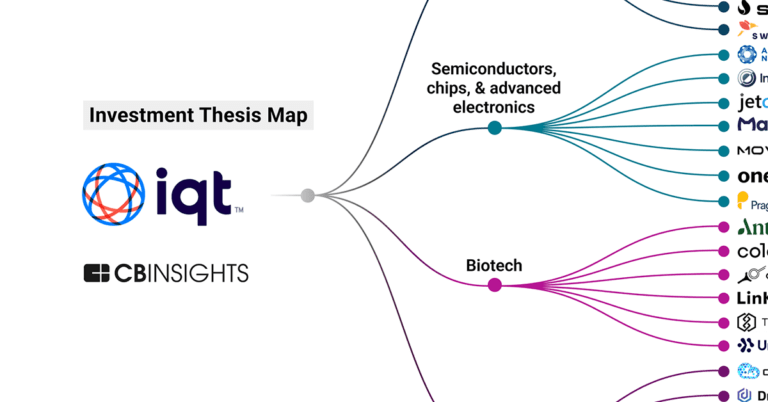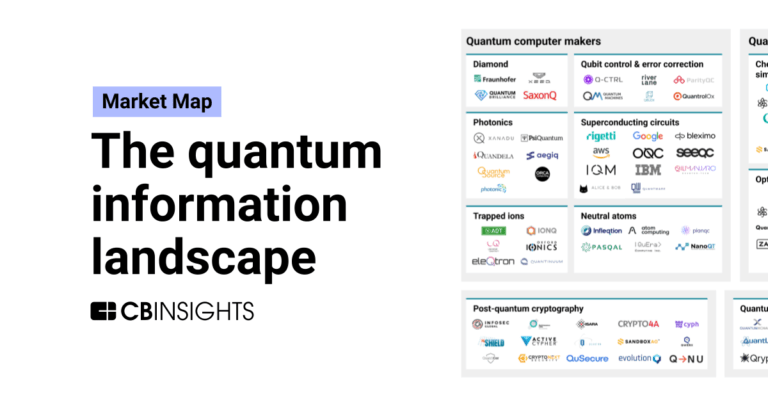
Infleqtion
Founded Year
2007Stage
Grant - XII | AliveTotal Raised
$420.96MRevenue
$0000Mosaic Score The Mosaic Score is an algorithm that measures the overall financial health and market potential of private companies.
-13 points in the past 30 days
About Infleqtion
Infleqtion serves as a quantum technology company focused on delivering software-configured, quantum-enabled products across various sectors. The company offers components for quantum research and development. Infleqtion's products are designed for precision and power for commercial organizations in the areas of navigation, communication security, energy distribution, and quantum computing. Infleqtion was formerly known as ColdQuanta. It was founded in 2007 and is based in Louisville, Colorado.
Loading...
Infleqtion's Product Videos
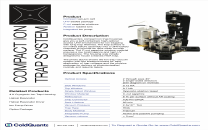
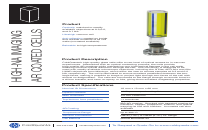
ESPs containing Infleqtion
The ESP matrix leverages data and analyst insight to identify and rank leading companies in a given technology landscape.
The quantum sensors market encompasses a broad range of devices that gain information by tapping into the delicate interactions of quantum phenomena with their surrounding environment. These devices are being built for a wide array of applications — including underground mapping and medical imaging — and can be smaller, cheaper, and thousands of times more precise than conventional approaches.
Infleqtion named as Leader among 15 other companies, including Q-CTRL, SandboxAQ, and Aosense.
Infleqtion's Products & Differentiators
Hilbert
Quantum Computer
Loading...
Research containing Infleqtion
Get data-driven expert analysis from the CB Insights Intelligence Unit.
CB Insights Intelligence Analysts have mentioned Infleqtion in 4 CB Insights research briefs, most recently on Jul 3, 2025.
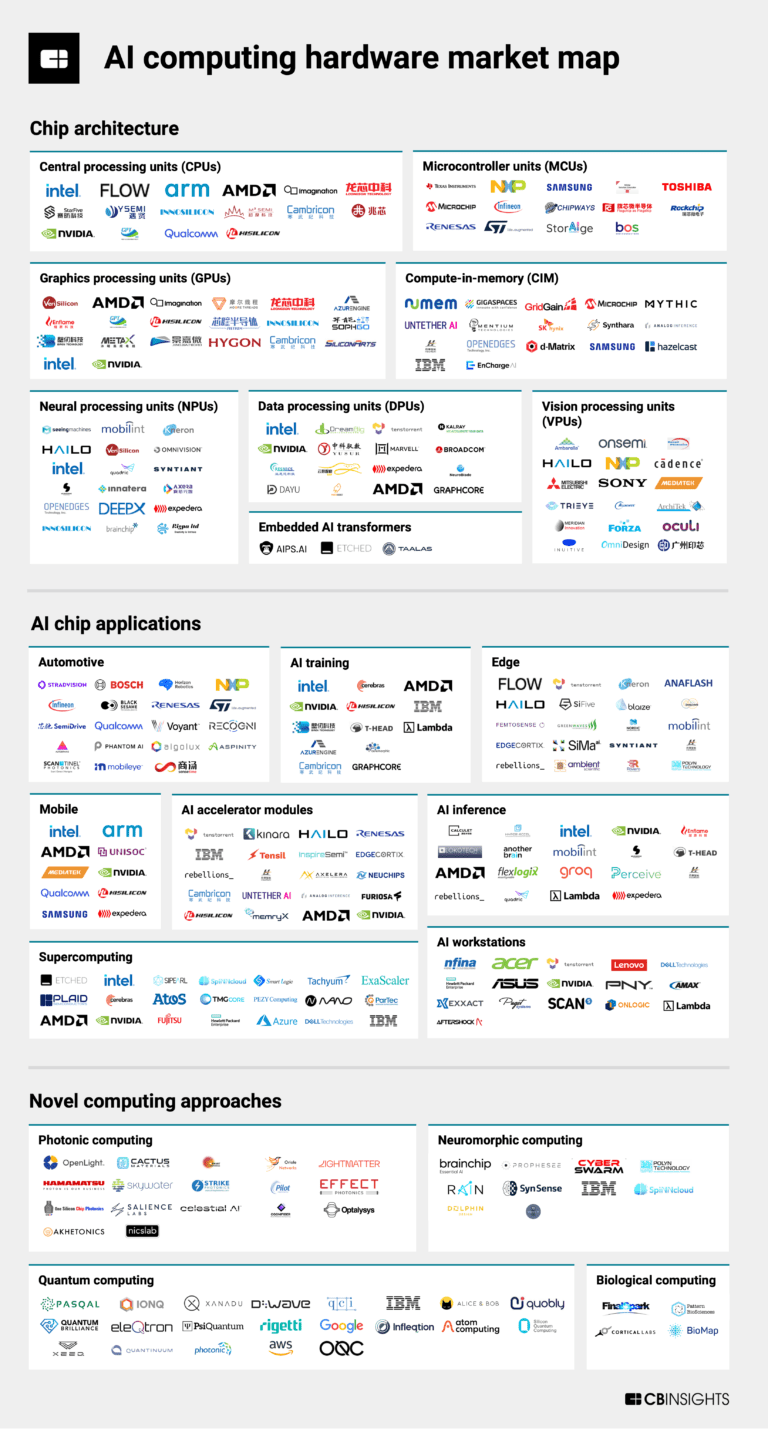
Sep 13, 2024
The AI computing hardware market mapExpert Collections containing Infleqtion
Expert Collections are analyst-curated lists that highlight the companies you need to know in the most important technology spaces.
Infleqtion is included in 2 Expert Collections, including Quantum Tech.
Quantum Tech
617 items
This Expert Collection contains private and recently exited companies working on quantum computing, quantum communication, post-quantum cryptography, quantum sensors, and other quantum tech.
Semiconductors, Chips, and Advanced Electronics
7,380 items
Companies in the semiconductors & HPC space, including integrated device manufacturers (IDMs), fabless firms, semiconductor production equipment manufacturers, electronic design automation (EDA), advanced semiconductor material companies, and more
Infleqtion Patents
Infleqtion has filed 52 patents.
The 3 most popular patent topics include:
- quantum mechanics
- quantum information science
- atomic physics

Application Date | Grant Date | Title | Related Topics | Status |
|---|---|---|---|---|
2/15/2021 | 4/1/2025 | Quantum mechanics, Quantum information science, Quantum measurement, Sensors, Quantum computing | Grant |
Application Date | 2/15/2021 |
|---|---|
Grant Date | 4/1/2025 |
Title | |
Related Topics | Quantum mechanics, Quantum information science, Quantum measurement, Sensors, Quantum computing |
Status | Grant |
Latest Infleqtion News
Jun 23, 2025
Published After China last month, America’s quantum party crashed our feed — so here we are. TL;DR: Trump’s Qatar deal notably headlines a $1B promise for Quantinuum — but like many mega-deals, real value might take a decade to emerge. On the private side, billion-dollar rounds and high-profile acquisitions (IonQ, PsiQuantum, Infleqtion) hint at consolidation — and challenge Europe to keep pace. As America’s quantum ecosystem grows, the gap between hype and utility remains the critical question. When US President Donald Trump announced a colossal $1.2 trillion economic partnership during his recent visit to Qatar, reactions oscillated predictably between awe and skepticism. Amid deals ranging from aerospace, highlighted by Qatar Airways’ headline-grabbing order for 210 Boeing aircraft, to expansive defense agreements, one quantum-focused announcement piqued our curiosity: Quantinuum’s billion-dollar joint venture with Al Rabban Capital. President Trump and the Emir of Qatar, Tamim bin Hamad al-Thani, during a signing ceremony in Doha (source: AFP) Quantum in Qatar: mega-deal or mirage? On the surface, it’s impressive. Quantinuum, majority-owned by industrial heavyweight Honeywell, positions itself as one of America’s quantum frontrunners in trapped-ion. The $1 billion deal — which, in fact, is spread over a full decade — is designed not only to deliver advanced quantum computing technologies to the region but also promises broader economic benefits through tailored quantum applications in sectors like energy, medicine, materials discovery, and even, attention buzzword warning, generative quantum AI. Equally significant is the commitment to workforce training, embedding quantum expertise in Qatar’s ambitious diversification strategy. Yet, peeling back the veneer of grand announcements reveals some familiar complexities. The overarching $1.2 trillion figure Trump touted includes liberal projections of value creation, such as speculative job figures and potential future contracts, that critics argue are, at best, generously optimistic — read Glenn Kessler’s excellent take in The Washington Post. Even the more tangible $243.5 billion subset of signed agreements incorporates previously committed deals and significant room for negotiation. In Quantinuum’s specific case, caution is warranted. While the announcement generates deserved excitement, positioning the Gulf region at the center of a burgeoning quantum ecosystem, seasoned observers may recall similar quantum partnerships globally that struggled to transition from ambitious headlines to real-world, industrial-scale impacts. Ion trap chip used in Quantinuum’s latest quantum computer, H2 (source: Quantinuum) Nevertheless, the symbolic value of this partnership shouldn’t be underestimated. It highlights a critical shift where quantum technology is now a prominent component of international diplomacy and strategic economic alignments. As Quantinuum CEO Dr. Rajeeb Hazra emphasizes, the venture represents more than technology transfer; it’s about creating sustainable quantum literacy, infrastructure, and applications tailored specifically for the Gulf region. US quantum financing: from exploration to consolidation While the Quantinuum-Qatar deal underscores quantum computing’s gradual ramp up on the global diplomatic stage, back home in the US, the recent surge in private-sector funding paints an even more aggressive picture. Increasingly, investors and companies alike are placing bold bets, accelerating a market transformation from early-stage experimentation to strategic consolidation and scale. Leading this recent investment wave, Infleqtion secured $100 million in a Series C funding round. After QuEra’s $200 million round earlier in 2025 (see our April piece ), this rounds signals again growing investor confidence in neutral atom platforms as one of the front-running architectures capable of delivering industrially relevant quantum solutions. Infleqtion already boasts significant commercial traction, reporting nearly $30 million in annual revenue with a robust customer pipeline surpassing $200 million. Clearly, neutral atom platforms are transitioning from scientific promise to tangible market realities. Infleqtion’s neutral atom platform (source: Infleqtion) Simultaneously, NYSE-listed IonQ has been making aggressive moves to reinforce its competitive position. Its recent acquisition spree — ID Quantique for quantum-safe networking, Capella Space for satellite tech, and, most recently, Lightsynq for photonic interconnects — all acquired through all-stock deals valued in the hundreds of millions, underscores IonQ’s strategic ambition. Yet this diversification, encompassing businesses that, while quantum-adjacent, diverge significantly from IonQ’s core trapped-ion focus, presents synergies that aren’t immediately obvious. What is more apparent is the revenue boost these companies can bring, prompting some observers to quietly wonder about the real strategic goal behind them. In any case, it’s arguably the first time we’ve seen such a diversified, almost conglomerate-like approach emerge in quantum — an unusual strategy in an industry still in its infancy. While the company has appeared on numerous TV segments touting its goal to be the “Nvidia of quantum” — or, bolder still, the next Nvidia plain and simple — its technological roadmap remains opaque, and mixed signals, including substantial recent share sales by both current and former CEOs, continue to raise eyebrows. Speak of the devil: Nvidia — previously cautious about quantum computing’s short-term viability — appears on the verge of a significant strategic shift. Reports indicate that Nvidia is in advanced talks to participate in PsiQuantum’s latest funding round, potentially valued at a staggering $750 million. PsiQuantum’s photonics-based approach, leveraging standard semiconductor fabrication, is particularly attractive to Nvidia, whose vast AI-focused semiconductor ecosystem could find natural synergies with photonic quantum architectures. This potential alliance would not only bolster PsiQuantum’s valuation past $6 billion but also create a new quantum-AI powerhouse capable of reshaping how quantum solutions integrate into broader computational frameworks. Jensen Huang, Nvidia’s CEO, facing Pete Shadbolt, PsiQuantum’s co-founder, at Nvidia GTC quantum keynote These financial developments carry critical implications that extend far beyond individual company success stories. IonQ’s valuation now exceeds $10 billion, PsiQuantum is approaching $6 billion, and Infleqtion — now proudly joining what we’ve dubbed the “three-digit club” (and you’re welcome to use it!) — collectively setting a new benchmark that could squeeze smaller startups and concentrate market power in fewer hands. For European startups and investors, the scale and speed of these US deals serve as both a challenge and a wake-up call: competing in the quantum race now requires not just technical excellence but substantial and strategic capital investment. At the same time, with quantum’s industrial utility still in development, skeptics rightly question whether these valuations are sustainable over the medium term — or if they risk inflating a bubble that could burst before quantum’s real-world impact fully arrives. Acquisitions galore, billion-dollar private rounds, and geopolitically tinged deals paint a picture of a country that’s both racing ahead and carefully hedging its bets. The US is staking its claim on the quantum future — though how these moves align with real-world utility remains to be seen. For Europe, the message is clear: buckle up, hang tight, and most importantly, keep pushing because the road ahead is only going to get tougher. You find this article interesting? Share it! ©2025. Supernova Invest. All Rights Reserved.
Infleqtion Frequently Asked Questions (FAQ)
When was Infleqtion founded?
Infleqtion was founded in 2007.
Where is Infleqtion's headquarters?
Infleqtion's headquarters is located at 612 West Main Street, Madison.
What is Infleqtion's latest funding round?
Infleqtion's latest funding round is Grant - XII.
How much did Infleqtion raise?
Infleqtion raised a total of $420.96M.
Who are the investors of Infleqtion?
Investors of Infleqtion include UK Government, Glynn Capital Management, In-Q-Tel, Breakthrough Victoria, Overmatch Ventures and 36 more.
Who are Infleqtion's competitors?
Competitors of Infleqtion include QuantWare, Alice & Bob, PsiQuantum, eleQtron, Qunnect and 7 more.
What products does Infleqtion offer?
Infleqtion's products include Hilbert and 4 more.
Who are Infleqtion's customers?
Customers of Infleqtion include Office of Naval Research , Office of the Under Secretary of Defense for Research & Engineering and Air Force Research Laboratory.
Loading...
Compare Infleqtion to Competitors
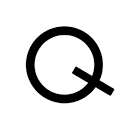
IQM is a company that operates in the superconducting quantum computers sector within the quantum computing industry. Their offerings include a range of full-stack quantum computers with qubits for various applications and cloud-based quantum computing services. IQM serves research laboratories, supercomputing centers, and industrial customers in need of quantum computing solutions. It was founded in 2018 and is based in Espoo, Finland.

QuantWare develops and fabricates superconducting quantum processors within the quantum computing industry. The company offers quantum processing units (QPUs) with different configurations, including tunable and fixed coupler QPUs, as well as quantum amplifiers designed to enhance readout capabilities. QuantWare provides these technologies to researchers and industry professionals. It was founded in 2020 and is based in Delft, Netherlands.

SEEQC is a company that develops digital quantum computing platforms for businesses in the quantum computing industry. The company provides classical and quantum technologies aimed at enhancing quantum computing systems, using chip-scale architecture and digital readout and control technology. SEEQC serves sectors that need advanced computing solutions, including the technology and research industries. It was founded in 2018 and is based in Elmsford, New York.

Qilimanjaro Quantum Tech focuses on analog quantum computing and operates within the technology sector. The company provides services including the design and manufacture of application-specific integrated circuits (QASICs), quantum computing solutions available through cloud platforms, and consulting services for the integration of quantum technology into existing systems. Qilimanjaro Quantum Tech serves sectors that require complex optimization and simulation, including logistics, finance, energy, materials, and pharmaceuticals. It was founded in 2019 and is based in Barcelona, Spain.

Pasqal specializes in quantum computing technology. It focuses on industries such as energy, mobility, healthcare, finance, and public services. The company offers quantum computing solutions for simulations and optimizations for various applications. It primarily sells to sectors that require computational capabilities, such as risk management, battery design, weather forecasting, quantum materials research, grid power management, and logistics optimization. The company was founded in 2019 and is based in Massy, France.

Quantum Circuits focuses on developing quantum computing technology. It offers quantum computers designed to solve problems that classical computers cannot handle, leveraging quantum phenomena such as superposition and entanglement for massive parallelism and exponential scaling of computational power. It primarily serves sectors requiring high computational power, such as the finance, pharmaceutical, machine learning, and artificial intelligence (AI) industries. It was founded in 2015 and is based in New Haven, Connecticut.
Loading...

